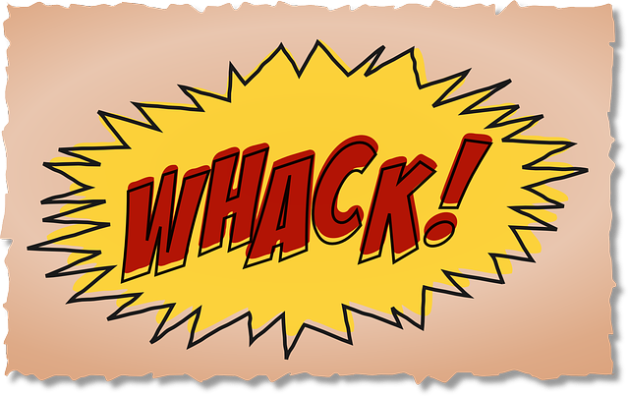Hello, followers! Hope you are having a nice beginning of the week. As for me, rushing through my last workdays before my vacation.
Our guest today is Tatiana Yoshizumi, who is an assistant editor at an international comics publishing house. She’ll be talking about comics translation.
Welcome, Tatiana!
Comics Translation
When Carol invited me to write a post for her blog, we talked a little bit about what I should write about: assistant editor’s tasks or comics translation. Since this is a blog about translation, we decided it would be more interesting to write about comics translation.
How it all began
Translating is not necessarily a task of an editor. However, my team is small (we are just nine people), the publishing house I work for is international, so I had the opportunity to translate. I started translating Sticker Albums, which is quite simple, then some parts of books and finally comics, which is really fun.
I translated Italian comics, which is called Fumetti, and Adventure Time, which is based on the cartoon with the same name.
Comparison with other types of translation
When translating comics, you can use and combine many techniques you use on other types of translation:
Literary translation: translating comics is quite similar to literary translation, especially if you think about the dialogues. Usually, you have to use informal language, trying to simulate the oral language.
Game localization: depending on the genre of the comics you are translating, there are lots of slangs. Also, you need to consider the context and images which must correspond to the text.
Technical translation: sometimes, the characters may use technical terms and you need to research to find the right one in your language. Or, you have to research about a specific subject. For example, in one of my translations, I had to learn about Italian Colonization of Ethiopia.
Poems: sometimes, you have to choose between meaning or form; if you want to translate the words and “lose” a joke, or keep a joke and not translate the “right” meaning.
Main challenges
Now I want to present you the main challenges I have faced until now.
- The first one is to balance oral language with writing. Usually, we try to use oral language in characters’ speech in order to sound natural, so we use abbreviations, slangs, contractions, sometimes even wrong grammar. However, there is always a limit. So, a pattern must be created.
- Each character has a specific way to talk, and you have to bring it to your own language, re-create that specific way, create a pattern, a vocabulary for that character.
- You need to pay attention to the art. The text should correspond to what is drawn. This means that if you are translating a text and choose to change words in order to make a joke, that is all right. However, if you are translating comics and the word is illustrated, you cannot change it.
A lot to be discussed
I write many other things and give examples, but I think I passed you an overall idea of how is it to translate comics to me.
I hope you have enjoyed my post and if you want to know more, please comment here or contact me!
Thanks for reading, and thank you, Carol, for having invited me!
Thank you, Tatiana, for accepting my invitation and kindly taking the time to write something interesting to our readers. 🙂
Note: Please remember that I’ll be on vacation the next two weeks, therefore, there won’t be any guest posts during this period. We’ll resume normal blogging activities on June 3rd.
Tatiana Yoshizumi has a BA in Translation Studies (English and Spanish) from Unesp. She has already done volunteer job, worked for a small translation company and afterwards for Italian Consulate (International Foreign Trade Department). Currently, she works as an Assistant Editor.


I really enjoyed reading this post. It also ties in nicely with the ‘Challenges in Translating Literature/ Humour/Poetry…’ on my blog. Comics seem to have them all, which makes the job of the translator more challenging, yet more interesting at the same time.
Another aspect of comics (some of them, of course) is the use of onomatopoeia, which also need translated. Not the easiest task by all means.
LikeLike
You’re right, Alina!
Comics translation is not for anyone, right?
Please share the link to your post with us.
LikeLike
Definitely, Carol. That is why translators specialise. A technical translator may be brilliant in his or her field, yet not so much if asked to translate a humorous piece.
I have a whole series on challenges in various fields, but the 3 I mentioned are: literature (http://inboxtranslation.com/blog/challenges-translating-literature/), poetry (http://inboxtranslation.com/blog/challenges-translating-poetry/) and humour (http://inboxtranslation.com/blog/comedy-translation-irregu-hillarities/).
If you have any experience with any of them, I’d love to hear your thoughts.
LikeLike
Wow! Great series, Alina! Congrats!
I can’t believe I have missed it.
I’m starting to have some experience with literature translation now. I’ve already translated some pilots for a couple of children’s books and an adult book. I must admit I didn’t enjoy translating the adult book, but did have a bit of fun translating the children’s.
I can’t say much about it though. It’s was something small. But I do prefer translating IT.
LikeLike
Thank you for your comment, Alina!
You’re right! I forgot to talk about onomatopeia, which, sometimes, is quite chellenging as well!
LikeLike
You are welcome, Tati. As I said, a good post. It is inevitable to omit a few things or just focus on the most important ones. By the way, which aspect do you personally find the most challenging? And which one do you like the best?
LikeLike
Well, personally, what I find the most challenging are two points: the play on words and cultural aspects. And these are also what I like the best, because it is really nice to see that you come up with a nice translation!
LikeLike
Carol, unlike you, IT is not my cup of tea. Sure, I’ve done some translations in the field, but definitely not my favourite.
Tati, I have to agree. Wordplays are the most difficult ones, but oh, the satisfaction of coming up with that clever translation!
LikeLike
Pingback: Weekly favorites (May 16-22) | Lingua Greca Translations
Great Read! Good to know these aspects of comic translation, find it most interesting.
LikeLike
I’m glad you liked it, Nico!
Thanks for your comment! 🙂
LikeLike
Pingback: Tradução de quadrinhos | Carol's Adventures in Translation